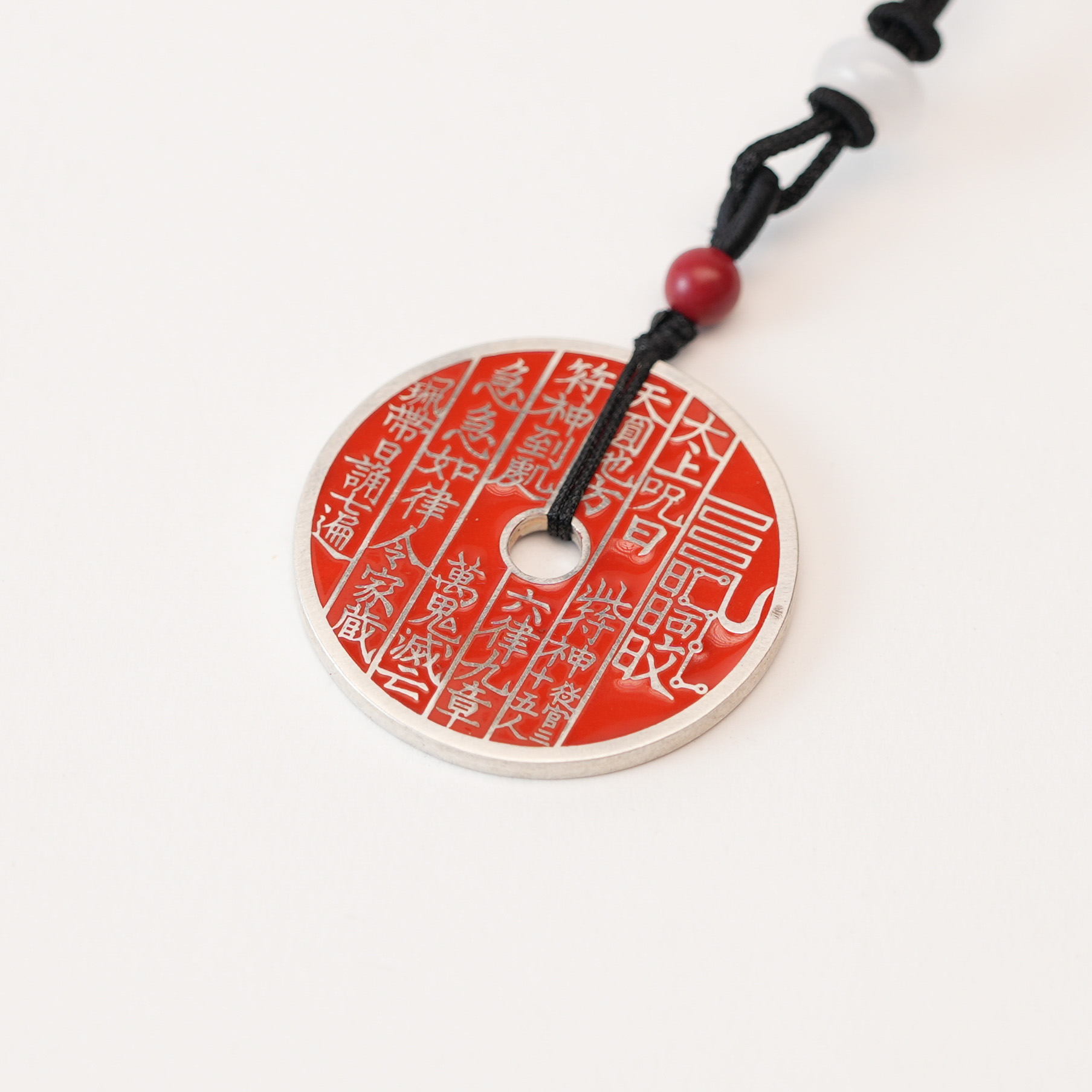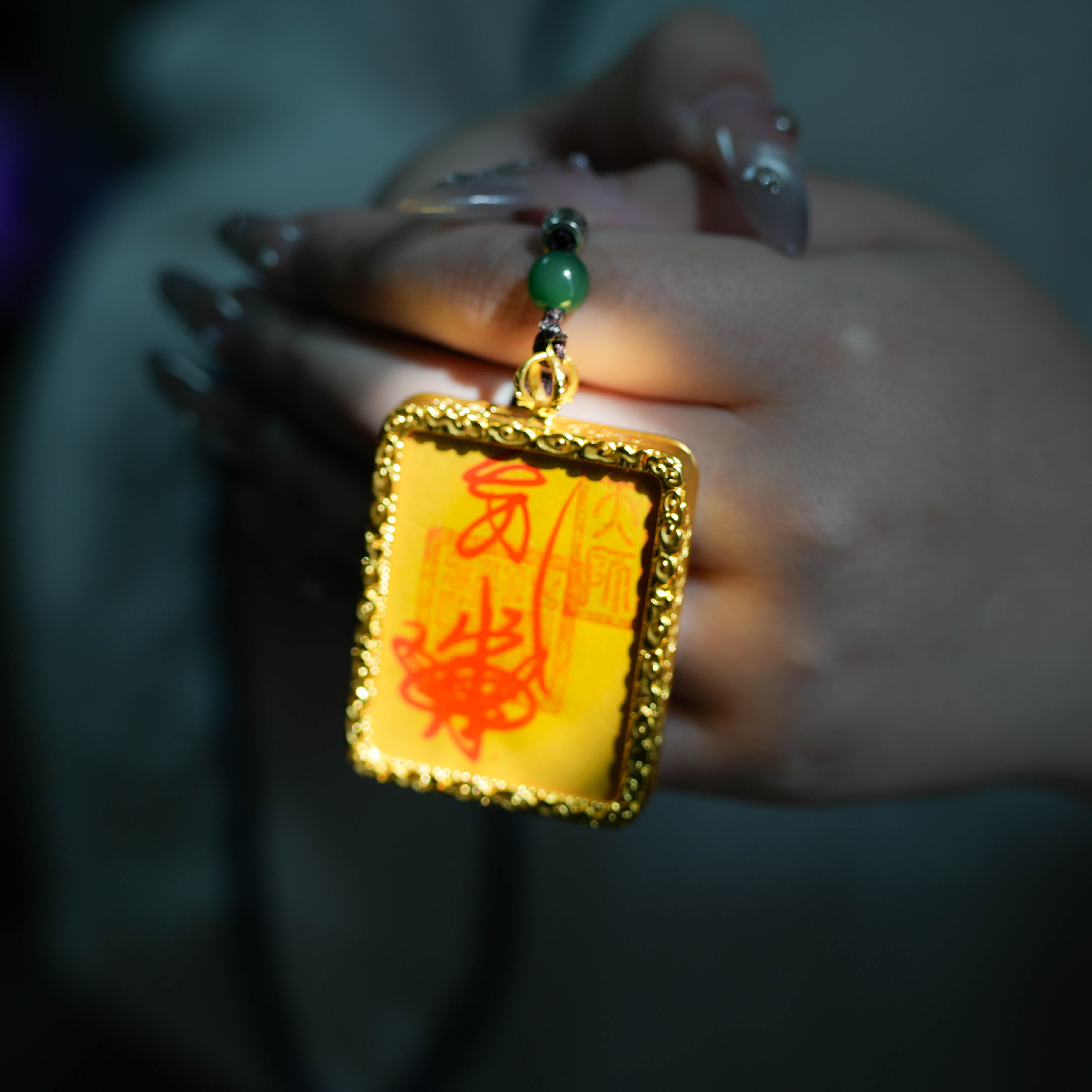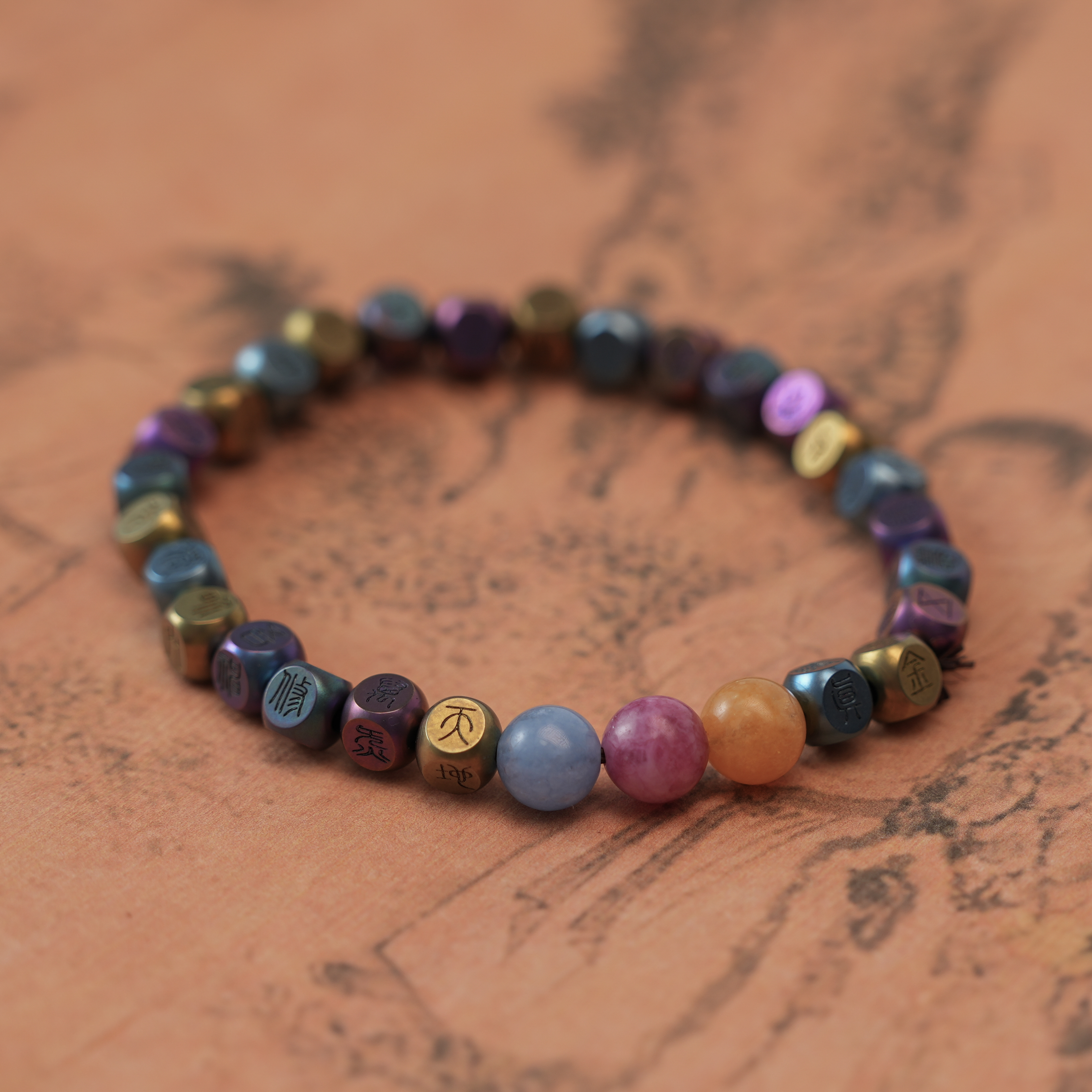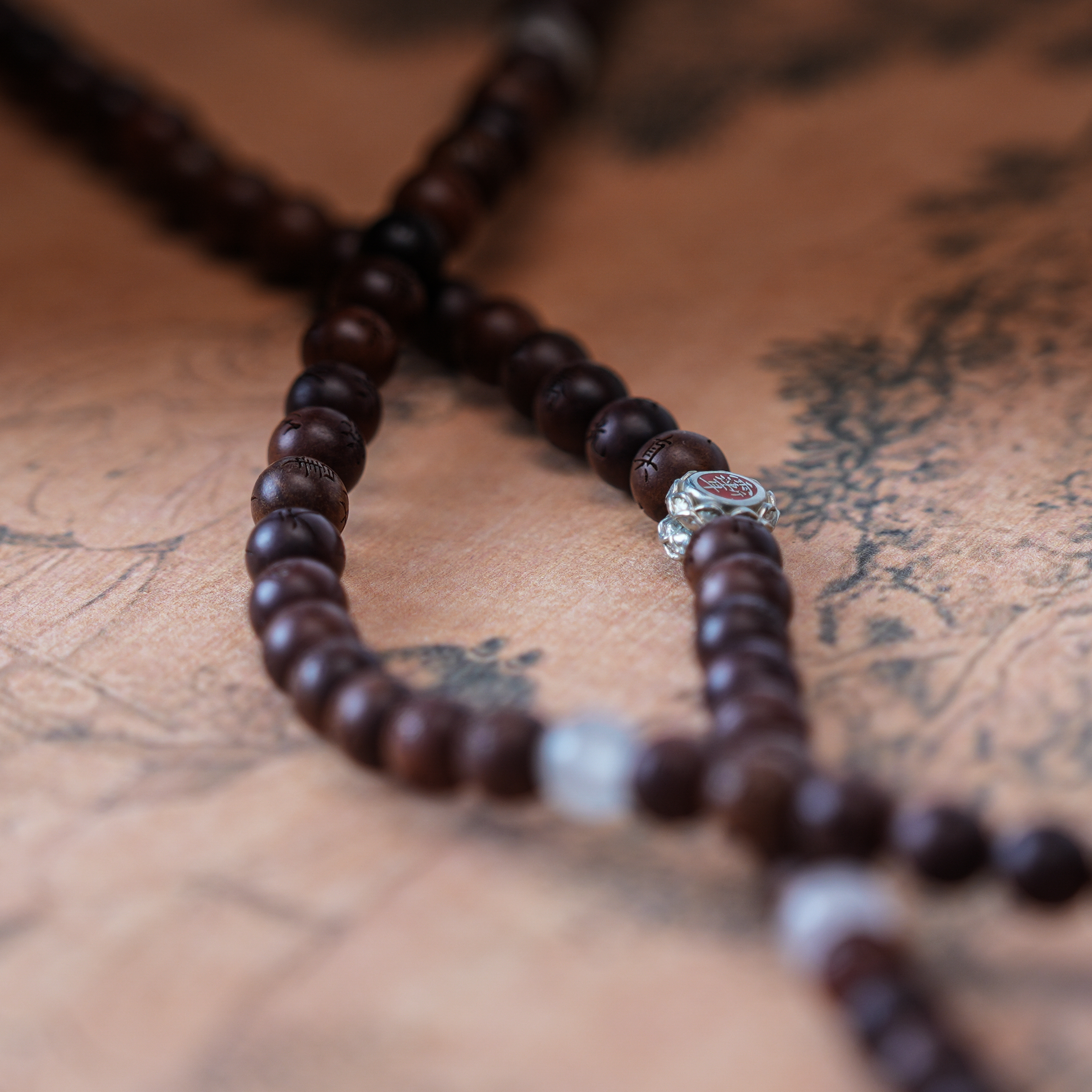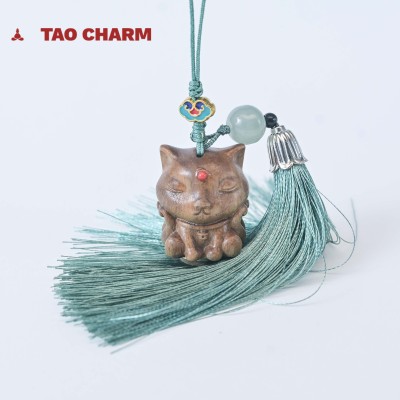What is the Belief of Taoist?
道教信仰 Tao Belief
道教以“道”为最高信仰。“道”无形无象,而又生育天地万物。“道”在人和万物中的显现就是“德”。故万物莫不尊道而贵德。道散则为气,聚则为神。神仙既是道的化身,又是得道的楷模。神仙以济世度人为宗旨。故道教徒既信道德,又拜神仙。
Taoism takes "Tao" as its highest belief. "Tao" is invisible and formless, yet it gives birth to all things in the world. The manifestation of "Tao" in people and all things is "virtue". Therefore, all things respect Tao and value virtue. When Tao is scattered, it becomes Qi, and when it is gathered, it becomes immortals which are both the incarnation of Tao and the model of Tao. Their aim is to save the world and save people. Therefore, Taoists believe in morality and worship immortals.
道德Tao and Virtue
《道德真经》:"Tao Te Ching":
道生一,一生二,二生三,三生万物。(第四十二章)
The Tao generates the laws of nature which rise to the Yin and Yang; The Yin and Yang turn into Yuan Qi; And the Yuan Qi keeps running and generates all things in the world. ("Tao Te Ching"Chapter 42)
有物混成,先天地生。寂兮寥兮,独立而不改,周行而不殆,可以为天地母。吾不知其名,字之曰道,强为之名曰大。大曰逝,逝曰远,远曰反。故道大,天大,地大,王亦大。域中有四大,而王居其一焉。人法地,地法天,天法道,道法自然。(第二十五章)
There is a muddled thing that existed before heaven and earth came into existence. Lonely and silent, empty and formless, it exists independently without change, and runs in cycles without stopping, so that it can serve as the mother of heaven and earth. I don't know its name, so I reluctantly call it "Tao" and then reluctantly give it the name "Da". It is vast and boundless and runs endlessly. Therefore,Tao, sky, earth and the king is great. There are four greats, and one of them is the king. Man takes the law of the earth, the law of the earth takes the law of the sky, the law of the sky takes the law of the "Tao", and the Tao is purely natural. ("Tao Te Ching"Chapter 25)
道之为物,惟恍惟惚。惚兮恍兮,其中有象;恍兮惚兮,其中有物。窈兮冥兮,其中有精;其精甚真,其中有信。自今及古,其名不去,以阅众甫。(第二十一章)
Tao is a thing that has no fixed entity. It is so profound and obscure, but there is essence in it. This essence is very real, and there is faith in it. From the present day to the ancient times, its name can never be abolished and disappear, and it is based on it that the beginning of all things can be observed and recognized.("Tao Te Ching"Chapter 21)
大道泛兮,其可左右。万物恃之以生而不辞,功成而不有。衣养万物而不为主,可名于小;万物归焉而不为主,可名为大。以其终不自为大,故能成其大。(第三十四章)
The Tao is vast and great, and it exits in everywhere. Even though all things rely on Tao to survive, it never declines or refuses to take on this responsibility or asks for credit in its achievements. Although the Tao nourishes all things, it does not consider itself the master of all things, and can therefore be called “small”;Although all things grow from Tao, it does not consider itself the master of all things, so it can be called “great” from this perspective.Because Tao has all the humble and kindness, so it is called the greatest. ("Tao Te Ching"Chapter 34)
道常无为而无不为。(第三十七章)
The Tao often manifests itself as inaction, without forceful intervention or control, but is able to accomplish everything. ("Tao Te Ching"Chapter 37)
反者道之动;弱者道之用。(第四十章)
The movement of things follows the law of transformation in the opposite direction, and Tao works through tender forces, not through forcefulness.("Tao Te Ching"Chapter 40)
道者万物之奥。善人之宝,不善人之所保。(第六十二章)
Tao is the secret of all things. It is the treasure of good people while is also the preserve of bad people. ("Tao Te Ching"Chapter 62)
道生之,德畜之,物形之,势成之。是以万物莫不尊道而贵德。道之尊,德之贵,夫莫之命而常自然。故道生之,德畜之;长之育之;成之熟之;养之覆之。生而不有,为而不恃,长而不宰。是谓玄德。(第五十一章)
Tao gives existence to all things, and virtue nourishes all things, thus giving rise to the universe and the formation of "Potential". Therefore, everything honors Tao and virtue. Even though Tao is honored and virtue is precious, they follow the laws of nature and do not interfere the universe development. Although Tao creates all things, Tao does not possess them; Although Virtue helps universe, Vietue does not ask for their return; Although Tao and Virtue contribute to the growth of all things, they do not rule over them. That is called the greatest Tao spirit.("Tao Te Ching"Chapter 51)
孔德之容,惟道是从。(第二十一章)
When a person's virtue reaches a very high level, his or her behavior will naturally conform to the requirements of the “Tao.” ("Tao Te Ching"Chapter 21)
上德不德,是以有德;下德不失德,是以无德。(第三十八章)
People of the highest virtue do not boast of their virtue, help others without expecting anything in return, and do good deeds without making a fuss. This kind of behavior does not make the recipients feel pressured or burdened, and is as natural and comfortable as a spring breeze. Therefore, they truly have virtue.
People with low morals think they have not lost their morals, but in fact they are pursuing formal moral behavior, often in order to gain external recognition or rewards. This behavior, on the contrary, makes them lose their true morals.("Tao Te Ching"Chapter 38)
修之于身,其德乃真;修之于家,其德乃馀;修之于乡,其德乃长;修之于邦,其德乃丰;修之于天下,其德乃普。(第五十四章)
When a person improves himself through self-cultivation and inner moral cultivation, his virtues become pure and true, and he then extends this moral cultivation to his family, thus raising the moral level of the family. If one cultivates the Way in the township, then the township virtues will be honored and the whole country will have the Way; if one cultivates the Way in the world, then the individual will have the Way, and all the people in the world will have the Way. (Tao Te Ching, Chapter 54)
《南华真经》:"Nanhua Sutra":
夫道,有情有信,无为无形;可传而不可受,可得而不可见;自本自根,未有天地,自古以固存;神鬼神帝,生天生地;在太极之上而不为高,在六极之下而不为深;先天地生而不为久,长于上古而不为老;狶韦氏得之,以挈天地;伏羲氏得之,以袭气母;维斗得之,终古不忒;日月得之,终古不息;堪坏得之,以袭昆仑;冯夷得之,以游大川;肩吾得之,以处大山;黄帝得之,以登云天;颛顼得之,以处玄宫;禺强得之,立乎北极;西王母得之,坐乎少广,莫知其始,莫知其终;彭祖得之,上及有虞,下及五伯;傅说得之,以相武丁,奄有天下,乘东维,骑箕尾,而比于列星。(《大宗师》)
Tao has feelings and beliefs, and is intangible; it can be transmitted but not received, and be obtained but not seen; it has its own roots, there is no heaven and earth, and it has been fixed since ancient times; gods, ghosts, and emperors are born in heaven and earth; it is above Tai Chi and cannot be seen. Tao is high, below the six poles but not deep; it is born in the heaven and earth but not long-lasting; it is longer than the ancient times but not old; Weishi got Tao to grab the heaven and earth; Fuxi got Tao to attack Qi; Wei Dou got Tao, live a long life; The sun and the moon got Tao, they will never die; Kanhuai got Tao to attack Kunlun; Feng Yi got Tao, he swimed in the great rivers; Jianwu got Tao, lived in the mountains; Huangdi got Tao,he climbed the sky; Zhuanxu got Tao and placed it in the Xuan Palace; Yu Qiang got Tao and set it up near the North Pole; Queen Mother of the West got Tao and sat in Shaoguang, not knowing Tao beginning or ending; Pengzu got the Tao, dated back to the Age of Yu and lasts until the Age of Wu;Fu Shuo got Tao and assisted Wu Ding to unify the world, and he rode on the east dimension, rode on the minutiae, and was compared to the stars.("The Grand Master")
道者,德之钦也;生者,德之光也;性者,生之质也。(《庚桑楚》)
Tao is the cornerstone and guide for the cultivation of Virtue; Life is the light of Virtue; Human nature refers to the essential properties of life. ("Geng Sang Chu")
泰初有无,无有无名;一之所起,有一而未形。物得以生,谓之德。(《天地》)
The initial state of the universe is “nothing”, which has not been given a specific name or attribute, and the origin of the universe is based on the Tao, which then leads to the creation of all things by Virtue. ("World")
故形非道不生,生非德不明。存形穷生,立德明道,非至德者邪?(《天地》)
Without Tao, form cannot be generated; without Virtue, life cannot be manifested. Is it not supreme Virtue to maintain form, exhaust life, establish Virtue, and manifest Tao? ("World")
严君平《老子指归》:Yan Junping's "Laozi Zhigui":
太上之象,莫高乎道德。
Nothing is higher than Tao and Virtue.
《老子想尔注》:"Laozi Xiang'er Note":
一者,道也。……一散形为气,聚形为太上老君。
Tao is the source of all things in the universe. It can be either an abstract to “qi” or a concrete “Taishang Laojun”.
《清静经》:"Qing Jing Sutra":
大道无形,生育天地;大道无情,运行日月;大道无名,长养万物。
The Tao is invisible, the Tao is beyond the limits of language and concepts, the Tao selflessly and without prejudice runs the sun, moon and stars and governs everything in the universe; it is the source of nourishment that grows and nourishes all things.《太上老君内观经》:"Tai Shang Lao Jun Vipassana Sutra":
道者,有而无形,无而有情,变化不测,通神群生。在人之身,则为神明,所谓心也。所以教人修道则修心也,教人修心则修道也。道不可见,因生而明之;生不可常,用道以守之。若生亡则道废,道废则生亡。生道合一,则长生不死,羽化神仙。
Though the Tao exists, it is intangible but contains emotions; the Tao is ever-changing and permeable to all things. In the human body, the mind is the embodiment of the divine. Cultivation of the Tao focuses on cultivating the mind, and the process of cultivating the mind is also the process of cultivating the Tao. Tao cannot be perceived directly, but through the existence and activities of life, we can understand and experience Tao indirectly. Life is short, and we should utilize our understanding of the Tao to guard it; if life does not exist, then the Tao does not exist, and if the Tao is forgotten, then the existence of life is lost. If life does not exist, then the Tao does not exist, and if the Tao is forgotten, then the existence of life loses its foundation. By cultivating and practicing the Tao to bring life and the Tao into unity, life can transcend the limitations of the physical body, achieve spiritual immortality, and even reach the realm of the immortals.
唐代成玄英《道德真经义疏》:Cheng Xuanying of the Tang Dynasty,
"Daode Zhenjing Yishu":
道者,虚通之妙理,众生之正性也。(第六十二章注)
The essence of Tao is the wonderful truth that is void of stagnation and at the same time the upright nature of all beings. (Note to Chapter 62)
唐代孟安排《道教义枢》:Meng arranged "Taoist Doctrine" in the Tang Dynasty:
道德者,虚极之玄宗,妙化之深致。
People with high Tao and Virtue have inner emptiness and quietness, and reach a state of profound change.
唐玄宗《道德真经疏》:Tang Xuanzong's "Tao De Zhen Jing Shu":
道者德之体,德者道之用。
Tao is the basis or essence of Virtue, while Virtue is the expression or application of Tao.
唐代吴筠《玄纲论》:Wu Jun's "Xuan Gang Lun" in the Tang Dynasty:
道者何也?虚无之系,造化之根,神明之本,天地之源。其大无外,其微无内,浩旷无端,杳冥无对,至幽靡察而大明垂光,至静无心而品物有方,混漠无形,寂寥无声,万象以之生,五音以之成,生者有极,成者必亏,生生成成,今古不移,此之谓道也。
How to define "Tao"? Tao is the state of nothingness, the root of creation, the foundation of the gods, and the source of heaven and earth. The Tao is so big that its external boundaries cannot be found; the Tao is so small that its internal structure cannot be found. Its vastness is so boundless that it has no beginning and no end; its depth is so infinite that it is untouchable. Although the Tao is extremely deep and difficult to perceive, the light of the Tao still shines; even in the extremely quiet and mindless state of the Tao, everything has its own place and law, and exists and develops in an orderly manner. The Tao is vague and inscrutable, quiet and silent. The Tao contributes to the generation and development of all things. The meaning expressed by "Tao" is that the existence of life has its limit, and the growth and development of anything will eventually reach a limit, but the cycle of life and the changes in things are eternal and unchanging.
德者何也?天地所禀,阴阳所资,经以五行,纬以四时,牧之以君,训之以师,幽明动植,咸畅其宜,泽流无穷,众生不知谢其功,惠加无极,百姓不知赖其力,此之谓德也。
How to define Virtue? The generation and development of all things in the universe are influenced and regulated by heaven and earth, yin and yang, the five elements and the four seasons. Through the rule of monarchs and the teachings of masters, all things in heaven and earth, whether tangible or intangible, animal or plant, are able to develop and survive appropriately. Grace is like endless flowing water that nourishes all living beings extensively, but they do not know how to thank for the merit of this grace, and people do not know how to rely on their own strength to live their lives, and this is when virtue plays a role in making all things grateful.
然则通而生之之谓道,道固无名焉。畜而成之之谓德,德固无称焉。
Tao is the fundamental cause of the creation and development of all things, but Tao itself has no fixed name or form. "Virtue" refers to the nature, qualities and functions of all things, and virtue is also intangible.
天地、人物、灵仙、鬼神,非道无以生,非德无以成,生者不知其始,成者不见其终,探奥索隐,莫窥其宗。(《道德章第一》
The world, people and things, immortals and ghosts all arise from the Tao and grow in Virtue.They were formed without knowing its beginning, and after completing its development it was impossible to see the end.They probes the depths of reason, searches for hidden things, but cannot glimpse their roots. ("Moral Chapter 1")
北宋陈景元《道德真经藏室纂微篇》:Chen Jingyuan of the Northern Song Dynasty's "Micro Compilation of the Tao De Zhen Jing":
道者,虚无之体;德者,自然之用。
Tao is the intangible foundation, and Virtue is the application and manifestation of this foundation in practice.
常道无名,唯德以显之;至德无本,顺道而成之。
The true Tao has no fixed name, but is revealed only through Virtue. The highest Virtue has no fixed essence, but is realized by following naturely the Tao.
